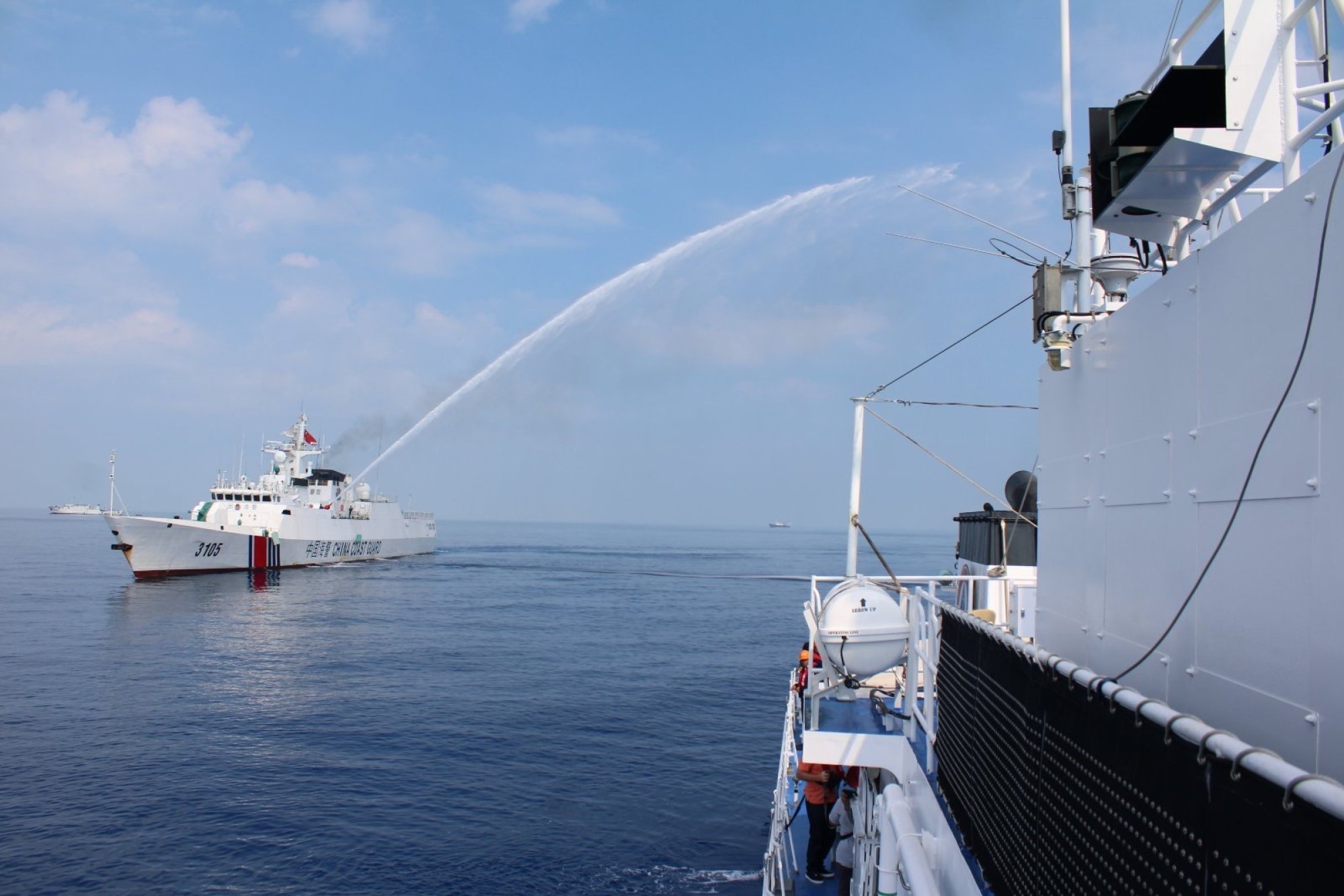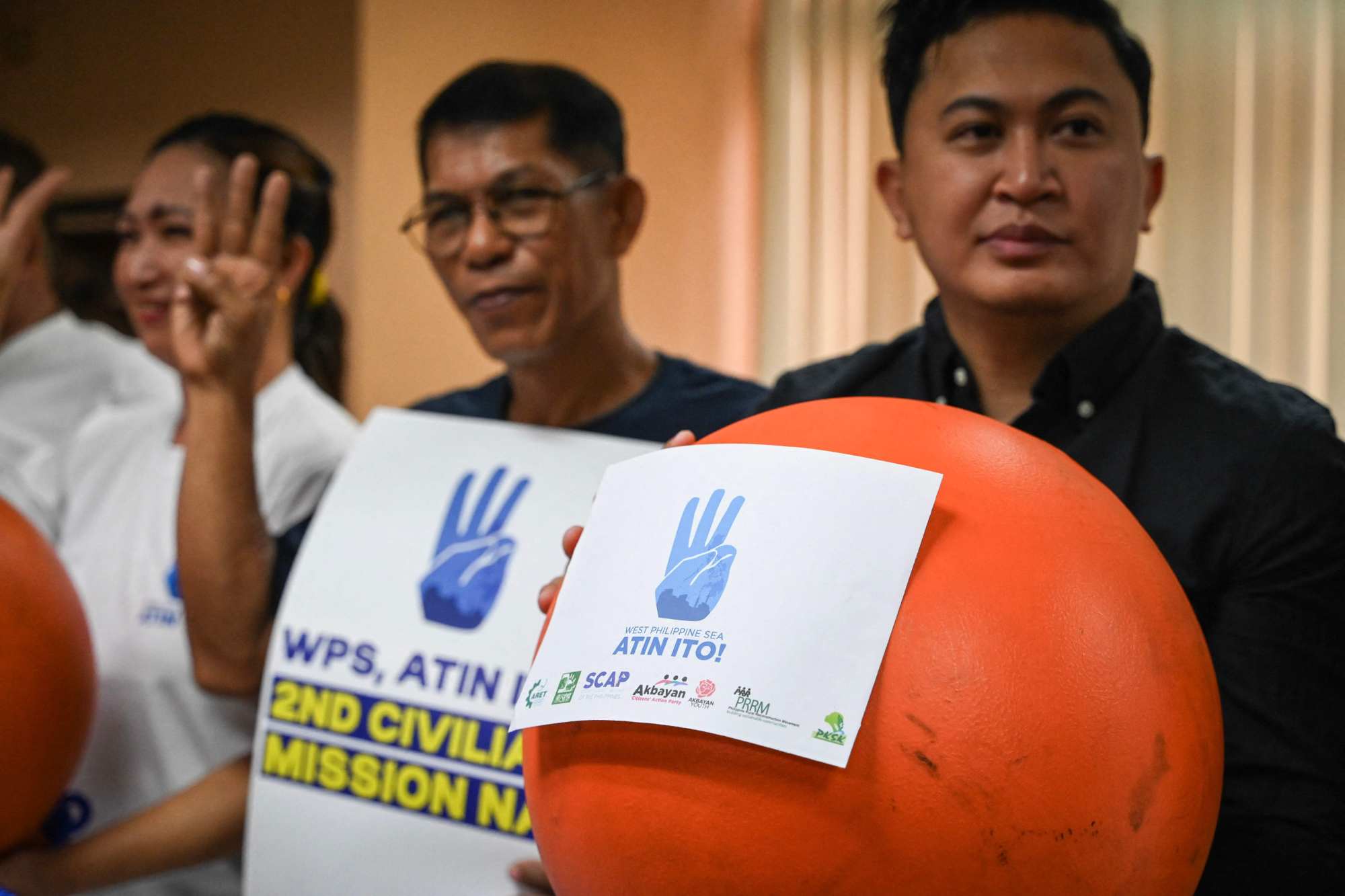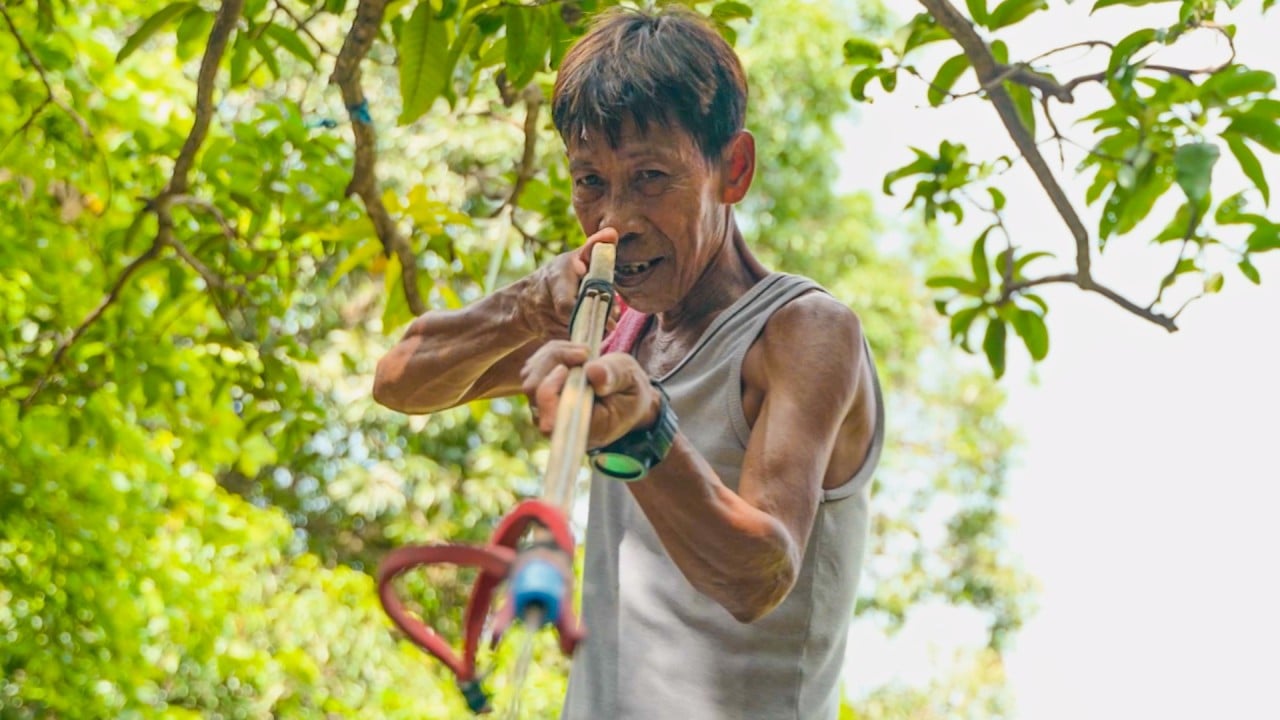A civilian group from the Philippines will continue its resupply mission to Filipino fishermen in the Scarborough Shoal, even in light of US reports of China sending a huge blockade to thwart the effort, in a latest move that could signal yet another flashpoint in the disputed South China Sea.
The group’s mission on Wednesday will be its second attempt at resupplying the fishermen. Last December, the group tried to deliver supplies and Christmas gifts to Filipino troops stationed aboard the BRP Sierra Madre at Second Thomas Shoal but it returned to shore after four Chinese vessels started shadowing its main ship.
The potential Chinese blockade would be the “largest blockade I have ever tracked at Scarborough”, said former US air force official and former defence attaché Ray Powell on social media platform X, adding that it would involve four Chinese coastguard ships and dozens of large Chinese maritime military vessels.
“China seems determined to aggressively enforce its claim over the shoal,” he said.

Philippine coastguard spokesman Jay Tarriela said Powell was making a “prediction” about Chinese vessels’ movement.
“[Powell] is forecasting that the Chinese vessel to Bajo de Masinloc has the intention to block the sail,” he told reporters on Monday, explaining the voyage was not sanctioned by the government.
“Our objective is to ensure the safety of those who would be joining. We have to make sure that they would not be harassed or injured, in case they are harassed by the Chinese coastguard,” he said.
The Chinese coastguard and its maritime military are likely to “swarm the mouth of” the Scarborough Shoal and prevent the civilian convoy from entering the Philippines’ fishing grounds, said Chester Cabalza, a security analyst and founding president of the Manila-based International Development and Security Cooperation.
“If China stops them, this will not deter the Filipino fighting spirit. It sends a strong message to Beijing that Filipinos are united in defending their maritime entitlements and sovereignty rights.”
There has been a spate of incidents between Chinese military vessels and Philippine fishing boats and navy ships in the disputed South China Sea.
“China will only try to intimidate our fishermen and provoke aggression to show that they have the upper hand in the contested Scarborough Shoal,” Cabalza said.
China gained control of the shoal in 2012 after a stand-off with the Philippines, and the area has seen bouts of high-tension encounters over sovereignty and fishing rights for years.
Claimants such as the Philippines, Malaysia and Vietnam, as well as a majority of Asean countries, hold that all maritime claims must be based on the 1982 United Nations Convention on the Law of the Sea (Unclos). They hold that China’s expansive claims are beyond the lawful limits of Unclos.
China – which is party to Unclos – rejects this interpretation of the law and also does not recognise a 2016 arbitral ruling in a case brought by Manila that was in favour of the Southeast Asian nation’s claims.
On April 30, the Chinese coastguard fired water cannons at a Philippine coastguard ship and a boat belonging to Manila’s fishing agency near the Scarborough Shoal. It was the latest of similar incidents that have taken place in the disputed waterways in recent months.

Rafaela David, head of the civilian resupply group Atin Ito (meaning ‘It’s Ours’), says the group remains unfazed by China’s intimidation, and that it will proceed with its mission as it is a “legitimate exercise of Filipino citizens’ right to movement within our own territory”.
The resupply convoy would comprise up to five large fishing vessels accompanied by more than 200 small fishing boats from Zambales province.
Philippine Senator Risa Hontiveros on Tuesday appealed to China not to interfere with the civilian convoy’s mission.
Jonathan Malaya, spokesman of the Philippines’ task force for the West Philippine Sea, cautioned China against blocking a civilian mission heading to the West Philippine Sea, using Manila’s term for the section of the South China Sea that defines its maritime territory and includes its exclusive economic zone.
“Our appeal to China is to respect the freedom of navigation of the vessels involved in this mission because they are civilians. They are not in any way connected to the government.”


